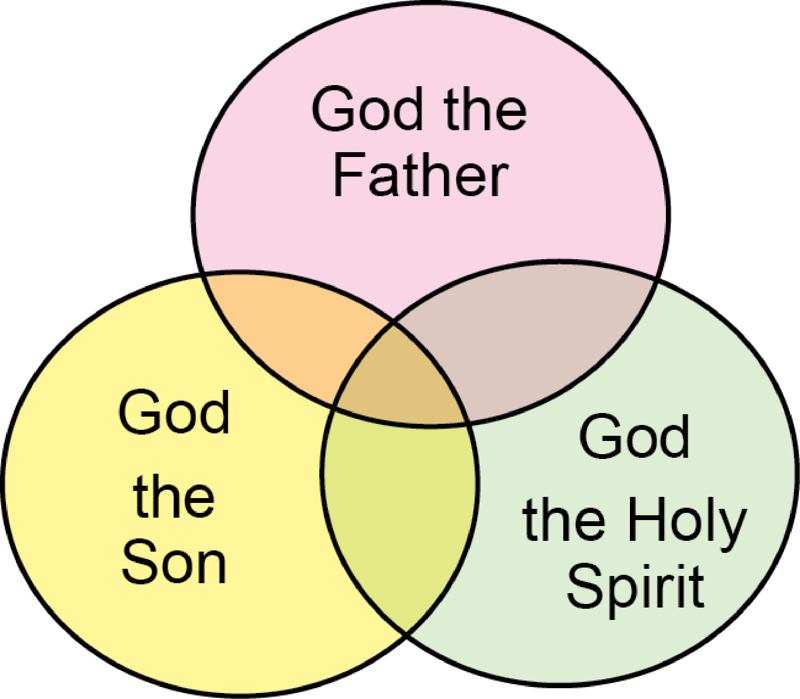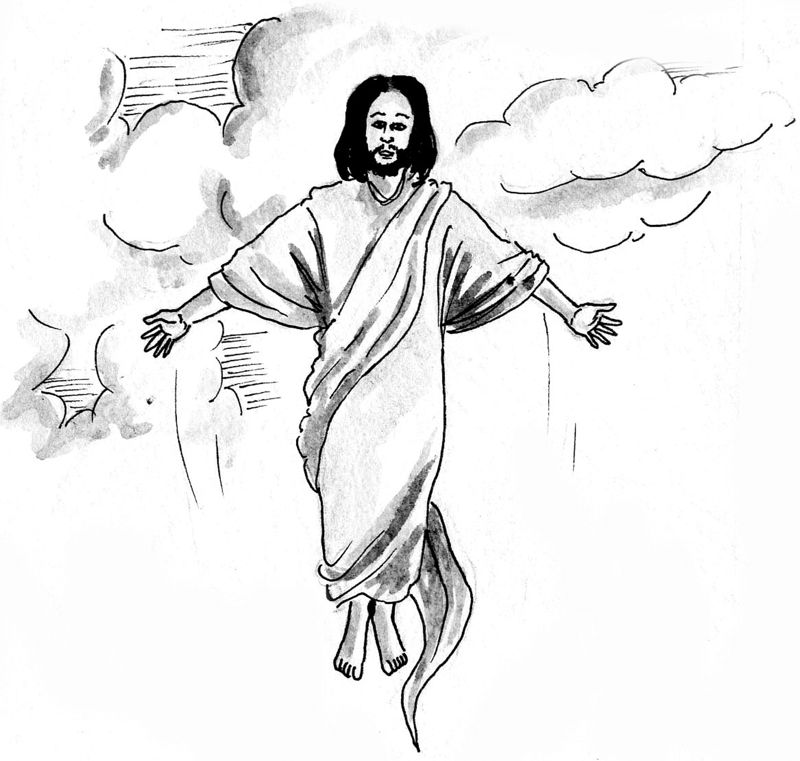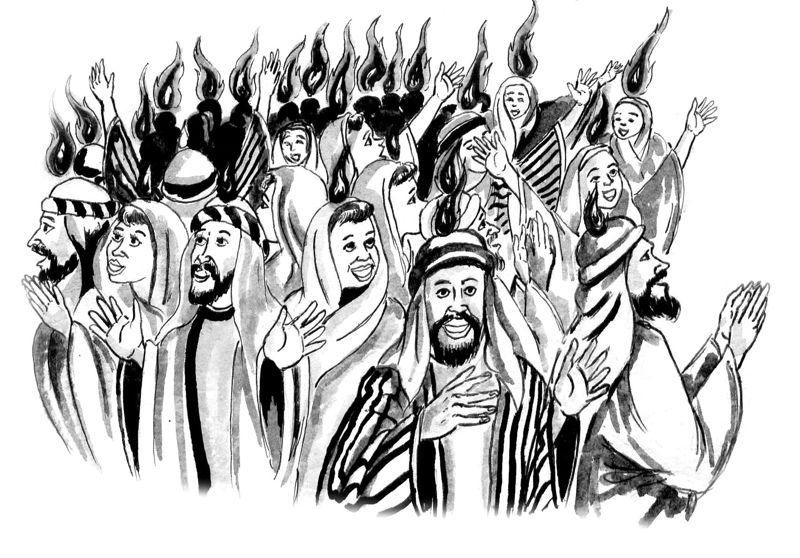The gifts of the Holy Spirit
In the book of Genesis, we read that the spirit of God was moving over the face of the waters. (Genesis 1:2). The book of Genesis therefore introduces us to the Trinity.

In the Trinity, we have God the Father, God the Son and God the Holy Spirit. The Holy Spirit is therefore the third person of the Trinity. He is divine and has been in existence from the beginning. His role in the Old and the New Testaments, and today, has been instrumental in the salvation history of God’s own chosen people. The Holy Spirit has many titles in the Bible. Some of these titles are:
- The Spirit of Glory (1 Peter 4:14)
- The Spirit of Counsel and Might (Isaiah 11:2)
- The Holy Spirit of Promise (Ephesians 1:13)
- The Spirit of Truth (John 14:17)
- The Eternal Spirit (Hebrews 9:14)
In this unit, we shall discuss selected teachings on the Holy Spirit, beginning with the Day of Pentecost in Acts Chapter 2.
Peter’s message on the Day of Pentecost
(Read Acts 2: 1-40)
In the Old Testament, the feast of Pentecost was celebrated during the wheat harvest. This was in order to thank God for the blessings of a good harvest of their fields. Pentecost was celebrated fifty days after the Passover festival.
However, as we shall see, this day would be given a new meaning in the New Testament. It is celebrated to commemorate the outpouring of the Holy Spirit upon God’s people.
Before the ascension of Jesus to heaven, he had been ‘clothed’ with power from on high (Luke 24:49). This power from on high is the Holy Spirit. On the Day of Pentecost, the disciples of Jesus were in Jerusalem as instructed by Jesus before his ascension. The disciples met in a house together with many Jews from the diaspora (those who lived in many parts of the world).
When the disciples were all praying, there was a violent wind which filled the house (Acts 2:2). They saw what seemed to be tongues of fire that separated and came to rest upon each one of them.
They were all filled with the Holy Spirit. The divine presence of the Holy Spirit made the believers speak in other tongues. They had not previously learnt these languages and this astonished the Jews who had come from other parts of the world. The Jews heard the believers in Christ declaring the wonders of God. However, some said that the believers were drunk (Acts 2: 7-13).
At this juncture, the apostle Peter stood up together with the other apostles. He took up the role as their spokesperson and explained the event that had just been witnessed.
Peter’s message
He defended the believers by saying that they were not drunk because it was still very early in the morning. Usually, on a festival day such as the Pentecost, it was expected that a Jew would fast and then break the fast later during the day. Therefore, it was unlikely that a group of people would be drunk at such an early hour (Acts 2:15).
In Acts 2:17-21, Peter quoted the Prophet Joel (Joel 2:28-32). He explained that the prophecy mentioned here had been fulfilled. The Spirit of God had now been bestowed on all people irrespective of sex, age and rank. This prophecy also stated that people would see miraculous signs signifying that the end was near. However, anyone who called upon the name of the Lord would be saved from destruction.
Peter went on to explain about Jesus. He said that:
- Jesus was accredited by God to do miracles, wonders and signs for God’s purpose. This showed that the Messianic Age had come (Acts 2:22).
- Though Jesus was put to death by the evil plans of people, God raised him from the dead. Death could not hold Jesus down, for God would not allow the Holy One to be abandoned to Hades. This had been prophesied by King David (Acts 2:23-27, Psalms 16:10).
- God had raised Jesus to life and he is exalted at the right hand side of God (Acts 2:33).
- God through Jesus had poured the Holy Spirit and that is what the people had witnessed (Acts 2:33).
- That God had made Jesus both Lord and Christ. This means that he was both King and Messiah (Acts 2:36).

When the people heard Peter’s explanation, they were filled with remorse and enquired on what they needed to do. Peter responded by telling them to repent and be baptised in the name of Jesus. This would enable them to receive the gift of the Holy Spirit. Those who accepted the apostles’ teaching were baptised. Acts 2:41 mentions that there were about three thousand people who were baptised.
According to the Book of Acts, the Holy Spirit ushered in a new era in the early church. Christians devoted themselves to the teachings of Jesus. They fellowshipped together, shared the Holy Communion and prayed together. Christians even sold their possessions and gave the proceeds to those who were in need. Miracles were witnessed by many. These actions made people to join the group of believers. Evidently, the early church in the Mediterranean region was founded through the power of the Holy Spirit.
What can we learn from the outpouring of the Holy Spirit on the Day of Pentecost?
- It is important to meet together for fellowship and for worship. The Holy Spirit was poured on the disciples who were worshipping together in a house.
- It is important to be obedient. The disciples experienced the power of the Holy Spirit because they had obeyed Jesus’ instructions to wait in Jerusalem.
- Jesus keeps his promises. He did exactly what he had promised before he ascended to heaven: the Holy Spirit came.
- The Holy Spirit empowers believers to be in the forefront in preaching God’s word. Peter was empowered to lead other apostles in explaining the event on the Day of Pentecost.
- Baptism of the Holy Spirit is important in salvation.
- The Holy Spirit unites people of all languages and tribes. The disciples spoke in different languages to reach out to people from all over the world.


